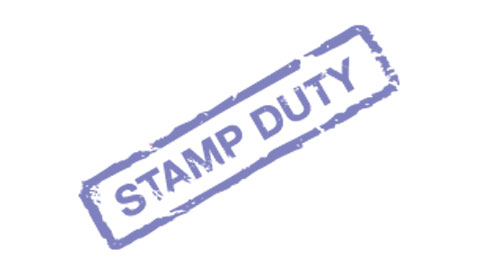The latest research from Lloyds Bank shows the Stamp Duty revenue raised in England and Wales increased by an estimated £1.5 billion to £7.7 billion in the year to March 2015.
This comfortably exceeds the £6.2 billion in the year to March 2008 at the peak of the last housing boom. In contrast, in the 12 months to March 1999, less than £1 billion was raised.
A higher number of residential property transactions and increased prices are estimated to have led to a significant rise in Stamp Duty revenues in the 12 months to March 2015, with the average homeowner now spending nearly £10,000 (£9,600) in total on Stamp Duty as they move up the housing ladder.
Homeowners stay in their homes for just under eight years (7.8 years) on average, and take three steps up the ladder in their lifetime. Based on these findings, the research looked at those homeowners who bought their first property in 1999, their second in 2007 and their third in 2015, living in typical homes at each step on the ladder.
The proportion of first time buyers paying Stamp Duty has more than doubled over the past 16 years from 32% in 1999 to 66% in 2015. In London and the South East over nine in ten first time buyers now face paying Stamp Duty on their purchase.
The proportion of homemovers paying Stamp Duty has risen from 68% in 1999 to 85% in 2015. In the southern regions of England more than nine out of 10 homemovers now pay Stamp Duty on their purchase.
The highest overall Stamp Duty costs are faced by buyers in London and the South East. In London home buyers pay four times as much as the average for England and Wales (£38,600). In the South East the lifetime cost is £22,800.
The lowest lifetime Stamp Duty costs are in Wales which, at an average of £3,800, are less than 40% of the England and Wales average. Homeowners in the North and East Midlands (both £4,000) and Yorkshire and the Humber (£4,500) face the next lowest Stamp Duty charges.
Based on regional average house prices for typical first time buyer homes in 1999, Stamp Duty was only a factor for those first time in London and the South East. By the time these people were ready to move on to their next home (in 2007), the average Stamp Duty for their new property had risen to £2,283. In May 2015, those buyers moving on to their ‘final’ home faced an average Stamp Duty bill of £7,400. This is £2,500 (26%) lower than in May 2014.
Lloyds said the decline in Stamp Duty is due to the reforms that were implemented last December. Under the new progressive structure of Stamp Duty no tax is paid on any of the value of a property below the starting threshold of £125,000. Above the first threshold, tax is charged at the relevant rate on the amount by which the selling price exceeds the threshold. This is continued through the various thresholds to the top rate. The ‘tipping point’ price is £938,000, at which point the buyer is worse off under the new structure. Therefore, the overwhelming majority of home buyers pay less Stamp Duty under the new regime.
Nitesh Patel, housing economist at Lloyds Bank, said: “The average homebuyer now pays almost £10,000 during their life as they make their way up the housing ladder. The welcome reforms to Stamp Duty announced by the Chancellor last December have helped to reduce Stamp Duty bills for the overwhelming majority of homebuyers and movers. However, as these figures show, the overall revenue raised with Stamp Duty actually increased by £1.5 billion in the year to March 2015.”



